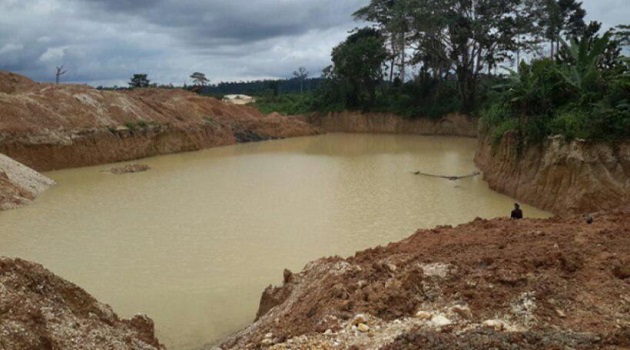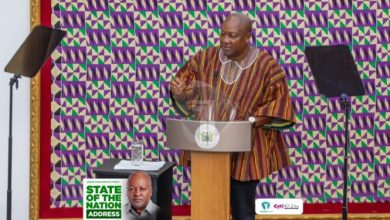A cursory look at Ghana’s Water Resources

The imminent threat to Ghana’s fresh water resources becoming scares in a matter of years f no drastic measures, poses a foundamental question to stakeholders. It becomes scarier with the waton pollution of our Rivers due to mining and sand winning.
While some African countries suffer from a lack of water, Ghana have aboundance of rivers with the Volta River still draining into the country, but suffers from too much polluted rivers.
Despite the government’s efforts to reduce the impact of illigal mining, save our Rivers and to improve access to quality water supply to the citizenry, some water treatment plants are being shut down either due to over flooding, the activities of illegal gold miners is still a bane.
Pollution of Water Bodies
The Head of Communications at the Ghana Water Company, gave an overview of water bodies in some regions that have been polluted by illegal mining activities.
The situation is even worse in the Ahafo Region, where residents have, according to Mr. Mantey, blocked the “course of the river at certain intervals such that the water is unable to flow into some areas.”
This situation is particularly rife in Kenyasi. “Recently we all heard of the lack of water in the Ahafo Region especially Asutifi South and North. It was not as a result of equipment but it was as a result of farming activities and illegal mining activities They had blocked the river course to irrigate their farms.”
Urbanisation
The rapid urbanization in Ghana causes water pollution. Unsafe housing with poor housing facilities like sinks and toilets pour polluted water into waterways. This causes families to resort to water vendors, which are often not safe.
This leads to a vicious cycle of water pollution, where more people get sick as a result. This leads to diseases affecting the people of Ghana is cholera. It spreads primarily through the use of faulty toilets and plumbing.
Efforts by Government
The government has taken steps to improve water through the Ghana Clean Water Project. This project seeks to improve the water situation by hiring skilled individuals to administer water quality testing as well as teaching communities how to maintain sanitation practices. The Water Resources Commission has equally been undertaken series of activities including public education, protecting the buffer zones along the Rivers, and joint efforts with intergovernmental agencies to stop illigal mining (galamsey). Climate change
The onset of harmattan and severe weather conditions is contributing to water shortages in Ghana. This leads to water rationing, which of course leads to protests and public discontent. Deforestation as a result of bad farming practices, charcoal burning, sandwinning activities besides the illigal mining, further exacerbate the problem by facilitating pollution of the limited water supply.
Likewise, population growth, alongside rapid urbanization, also causes water pollution. Between 2016 and 2050, projections estimate that the population of Africa will double. For Ghana, this means that while new economic activities could crop up, the strain on water resources will also increase. Ghana’s situation can only get worse as time goes on if it leaves these issues unchecked.
The African Development Bank calculated that granting universal access to water across Africa would cost $66 billion. This does not even include the $170 billion necessary to create a sustainable infrastructure to keep water supplies high. Officials in the government say that Ghana will need a better allocation of resources to see through possible improvements.
With adequate resources allocation, and intentional efforts, the the government could improve the water security in the country. That said, there ought to be a sustainable way of managing water resources through consistent education.
Source: Ghana/otecfmghana.com/Charles Mensah Nyamedi GYE NYAME MEDIA Networks and working with OTEC FM



